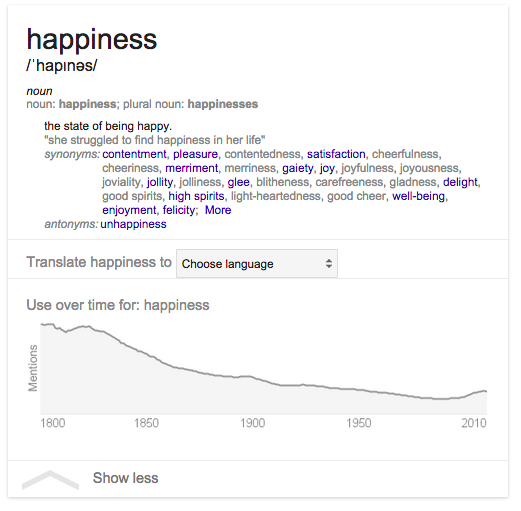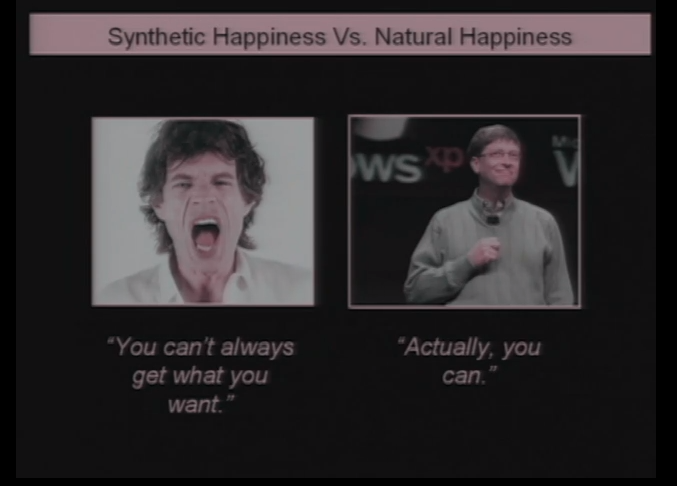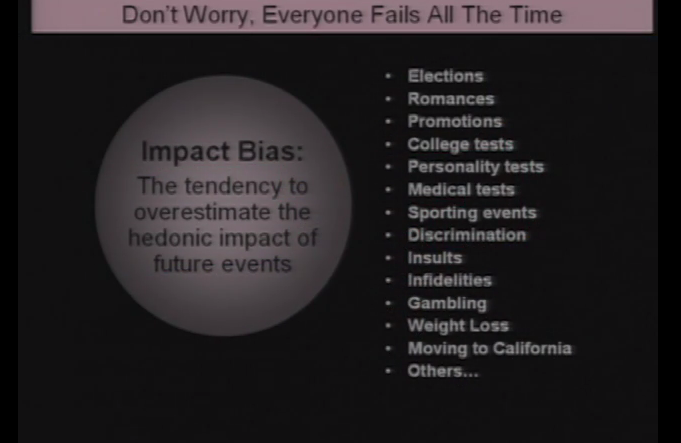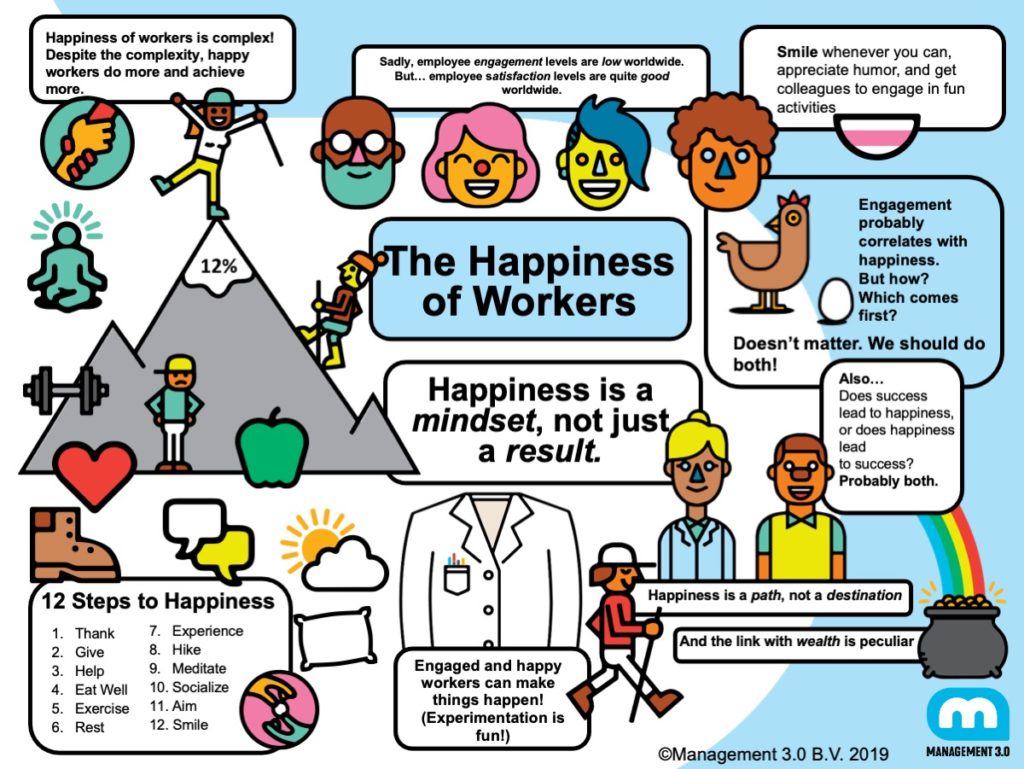by Jennifer Riggins
Happiness is way more than job satisfaction. It’s loving your life and it’s loving others’ lives. Really, it’s everything. Of course, if you are happy in life you will be able to perform better at work and vice versa, and no matter how you feel at work pours over into your external life.
And while we offer work life balance tips, we don’t really believe in that because work life fusion is the only feasible option. You don’t stop being one person when you’re at work than you are at home. Plus, positive work life fusion reflects and transmits happiness, which is usually reflected in happiness at work.
But what exactly is happiness? How can it be achieved? Today’s piece looks to explore exactly how to define happiness and what makes people happy.
The Search for Happiness
I started out my search for the ancient secret to happiness just how everybody does: I Googled it. Love it or hate it, to its algorithmic core, Google is perhaps the best insight into how things are, since it reacts to what people really want to know and its suggestions are based on search popularity. International Happiness Indexes and surveys ask people questions, which influences their results, since it is natural to want to be perceived a certain way, which will subconsciously influence results. Since these interviews are often done by talking to someone else, this further influences how they want to be perceived. Google, on the other hand, is often used without moderation and external influence, so people are really searching for what they want to know about.
I’m going to assume that we’ve all Googled before, so you know that when you start to type something into Google or your Chrome Browser, Google goes ahead and tries to guess or suggest what you are searching for. For the purpose of this piece, I used Incognito Search to try not to trigger any ads or influence the results based on my previous searches, to hopefully get valid search suggestions.
So, what are people searching for most?
First, I typed in “define” and suggested searches started popping up:
- #1 Search: “define love”
- #2 Search: “define empathy”
Understanding love and empathy are our greatest searches.
Next, I did “what is”:
- #1 Search: “what is my ip” (which we’ll ignore, but isn’t it always on the bottom of WiFi router?)
- #2 Search: “what is love”

Again, we want to know what love is. (I know you’re humming Foreigner.)
And then, typed in “how to be,” for which you can view the search results below.
How to be happy is still the priority of people and, in their search, wealth and beauty is what could be what they think is the quickest path to that happiness.
(By the way, when I typed in just “How to”, evidently “How to tie a tie” was by far the top result, which means our priorities are indeed a bit skewed, as I can never imagine a neck noose leading to happiness.)
How Can We Define Happiness?

Finally, I typed in “what is happiness”, this time hitting Enter/Return. The official Google definition of Happiness was defined as “the state of being happy” (which, of course, would flunk you in school, where you can’t use a word to define itself.)
How does Google use it in a sentence? “She struggled to find happiness in her life,” as if the perfect way to describe the word was through how it is devoid in our lives, like how black is generally defined by its absence of light.
And then Google really depressed me by showing how the big data of happiness has declined dramatically over the last two centuries. Like a fading heart on Grey’s Anatomy, happiness has almost flatlined, at least in its reference in literature. Although, over the last decade or so, there’s been a slight increase in mentions of happiness (which I assume is due to Britney Spears’ music, as she is obviously the Jane Austin of our time.)
At Management 3.0 we have a whole module of Worker Happiness. Learn more about it here.
Where does happiness come from?
Next in my search I went looking to the modern-day Socrates. What else but TED talks? And really “happiness” is one of the most—if not the most—popular topics for the most inspiring 18-minute sessions on YouTube. Why?
Well, as Google already proved, there are many people in search of happiness.
Dan Gilbert author of Stumbling on Happiness argues that happiness is the one of the coolest functionalities of our beautiful human brains. Gilbert starts by pointing out that over the last two million years, humans have evolved ostensibly to the top of the food chain because of their ability to think ahead. He says that Ben & Jerry’s didn’t have to test Liver and Onion flavored ice cream, because our ability to imagine that flavor keeps it from even being a viable experiment. Similarly, as one of the lamest animals physically, we continue to survive because we can wage risks and predict and plan for danger before it happens.
Gilbert says it’s in this part of the brain where we have what he calls our “psychological immune system,” which allows us to find happiness even when things don’t go as planned.
We like to believe that external circumstances like wealth or health affects our happiness, but Gilbert has scientifically proven that is not the case, and that, barring a few exceptions, everyone has the same cerebral capacity for happiness.
Quoting Shakespeare: “Tis nothing good or bad, but thinking makes it so.”
So we can basically think ourselves happy.
They even discovered “the fact is that a year after losing the use of their legs and a year after winning the lotto, lottery winners and paraplegics are equally happy with their lives.”
And this isn’t unusual. Gilbert goes on to explain that “A recent study showing how major life traumas affect people suggests that if it happened over three months ago, with only a few exceptions, it has no impact whatsoever on your happiness. Why? Because happiness can be synthesized.”
Gilbert says our psychological immune system is a system of mostly non-conscious cognitive processes that help them change our views of the world so that we can feel better about the worlds in which we find ourselves.
Basically, we can choose to be happy and, even if we try to choose to be unhappy, our brain’s survival instincts is wired to try to make us synthetically happy, aka, we fake it until we make it.

Gilbert defines synthetic happiness as being happy even when things don’t go your way, as natural happiness as being happy when they do. It’s kind of like the grass is always greener in reverse—realizing that what you have is better than you thought before and deciding that other side sucks.
While the synthetic sounds less authentic and desirable than natural happiness, Gilbert says that by deciding things aren’t as bad as they seem, we are creating true happiness that shouldn’t scoffed at.

And in the graph above, Gilbert proves that it doesn’t matter the area, that’s just how it is. We have an amazing ability to overcome.
Acceptance of this theory seems to be especially important in the entrepreneurial world. It’s almost accepted if startups fail if those people get back up and try again. There’s a need to find joy in failing and success in learning from that failure. Plus, no one is going to invest in a Negative Nancy, they want happiness! (And investors don’t care if it’s synthetic or not.)
Gilbert concludes his talk with:
Our longings and our worries are both, to some degree, overblown because we have within us the capacity to manufacture the very commodity we are constantly chasing when we choose experience.
So you better just get used to it. Whether you like it or not, you’re destined for happiness!
How can we train our brains to be happier?
The hilarious researcher Shawn Anchor argues that by constantly trying to be better, we’re actually blocking the brain, making it incapable of improvement, particularly of improving our state of happiness.
He says that it’s proven that only 25 percent of job success is based on our IQ; the rest is based on opportunity to be happy.
Alas, we always chant the opposite with: “If I work harder, I’ll be more successful, and if I’m more successful, I’ll be happier.” We all do this, whether in life, work, parenting, or school, we focus on getting better, assuming, then, if we are better at doing something, we can then feel better.
And then, of course, it’s an endless cycle where every time you do better, you need to improve more.
Anchor says that our brains work in the opposite way. By being positive, we actually activate that other 75 percent of cerebral potential.
“If you can raise someone’s level of positivity in the present, then their brain experiences what we now call a Happiness Advantage, which is: your brain, at Positive, performs significantly better than when it does at Negative, Neutral or Stressed. Your intelligence rises. Your creativity rises.
Your energy levels rise. In fact, what we’ve found is that every single business outcome improves.”
This happiness advantage makes you better at getting and keeping jobs, better at sales, and hugely more productive, among other benefits.
Why? Well this is your brain on drugs. When the chemical dopamine is released, it doesn’t just make you happier, it activates all the learning centers in your brain.
Anchor contends that, with just two minutes a day, for 21 days straight, you can rewire your brain to work more optimistically and more successfully.
The 21-day plan to Retrain Your Brain for Lasting Happiness. Each Day:
- Write three things you’re grateful for.
- Journal at least one good thing that happened that day.
- Exercise.
- Meditate or have relaxing down time.
- Do random or deliberate acts of kindness.
Like a 21-day cleanse or Insanity Workout, he promises that your brain at the end should be rewired and in shape for long-lasting positivity which will then lead to measurable success in life and work.
Where have you found happiness?
So tell us below, What makes you happy? How did you find your happiness? And if you have yet to discover it yet, how can we help? As fellow crazy human beings, what small acts could we do to help spread joy?
Photo: Alicia Jones (Unsplash)


